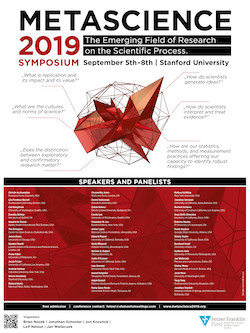Ethan C. Brown
University of Minnesota
Co-Authors: Elizabeth Fry, Alicia Hofelich-Mohr
The Lowly Worm Climbs Up a Winding Stair: Teaching the Roles of Randomness in Scientific Inference
Scientists and non-scientists alike struggle to reason about randomness. Prior research has shown that even quantitative psychologists underweight the effect of sample size on precision, and undergraduates confuse the roles of random sampling and assignment. Guided by conceptual change research, we are exploring ways of improving undergraduates’ reasoning about underlying mechanisms of power and bias so that students can better evaluate research findings. Clinical interviews during interactive simulation tasks showed students’ (n = 5) preference to attend to only a single sample, but certain graphs facilitated reasoning about precision. After a classroom intervention, students (n = 125) drew clearer distinctions between random sampling and assignment yet still prioritized sample size over the sampling method. So far, our research suggests that students need more extensive support for understanding randomness to encourage better scientific thinking about power, bias, and design.




